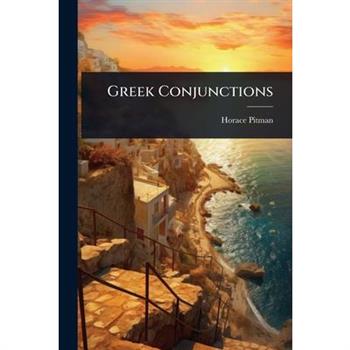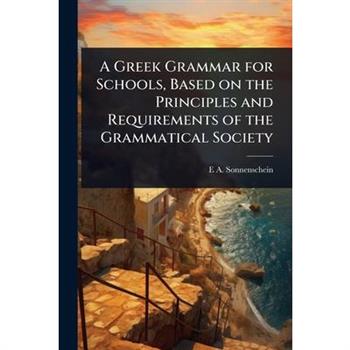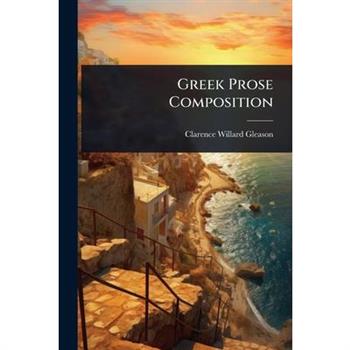Preparatory Latin Writer
Preparatory Latin Writer, by Charles Edwin Bennett, offers a comprehensive guide to Latin composition. Designed for students with some familiarity with the language, this book provides a structured approach to mastering Latin prose. Through carefully graded exercises and clear explanations of grammatical principles, Bennett enables learners to develop their writing skills and deepen their understanding of Latin syntax. This volume features a wealth of practice material, including sentence construction, passage translation, and original composition exercises. Bennett璽€(TM)s methodical approach ensures that students progressively build their proficiency, reinforcing their grasp of Latin grammar and expanding their vocabulary. As a result, Preparatory Latin Writer remains a valuable resource for both classroom use and self-study, aiding students in achieving fluency and precision in Latin writing.This work has been selected by scholars as being culturally important, and is part of the knowledge base of civilization as we know it. This work was reproduced from the original artifact, and remains as true to the original work as possible. Therefore, you will see the original copyright references, library stamps (as most of these works have been housed in our most important libraries around the world), and other notations in the work.This work is in the public domain in the United States of America, and possibly other nations. Within the United States, you may freely copy and distribute this work, as no entity (individual or corporate) has a copyright on the body of the work.As a reproduction of a historical artifact, this work may contain missing or blurred pages, poor pictures, errant marks, etc. Scholars believe, and we concur, that this work is important enough to be preserved, reproduced, and made generally available to the public. We appreciate your support of the preservation process, and thank you for being an important part of keeping this knowledge alive and relevant.
Exercises in Latin Prose Composition, by Frank Ritchie
"Exercises in Latin Prose Composition" by Frank Ritchie is a comprehensive guide designed to aid students in mastering the art of writing Latin prose. First published in 1907, this educational resource offers a systematic approach to understanding Latin grammar and syntax through practical exercises. The book is structured to progressively build the student's skills, beginning with simpler concepts and advancing to more complex constructions. Ritchie's work provides valuable practice for students seeking to improve their Latin composition abilities. The exercises are carefully crafted to reinforce grammatical principles and enhance the student's understanding of Latin idiom. This book remains a useful tool for both classroom instruction and self-study, offering a structured pathway to proficiency in Latin prose.This work has been selected by scholars as being culturally important, and is part of the knowledge base of civilization as we know it. This work was reproduced from the original artifact, and remains as true to the original work as possible. Therefore, you will see the original copyright references, library stamps (as most of these works have been housed in our most important libraries around the world), and other notations in the work.This work is in the public domain in the United States of America, and possibly other nations. Within the United States, you may freely copy and distribute this work, as no entity (individual or corporate) has a copyright on the body of the work.As a reproduction of a historical artifact, this work may contain missing or blurred pages, poor pictures, errant marks, etc. Scholars believe, and we concur, that this work is important enough to be preserved, reproduced, and made generally available to the public. We appreciate your support of the preservation process, and thank you for being an important part of keeping this knowledge alive and relevant.
Dutch Self-taught
Dutch Self-Taught, by Carel Thieme and Carl A. Thimm, offers a comprehensive guide to learning the Dutch language. Designed for independent study, this book provides readers with the tools necessary to acquire a practical understanding of Dutch. A key feature of this self-teaching manual is its inclusion of phonetic pronunciation, aiding learners in mastering accurate spoken Dutch. The book aims to equip individuals with the ability to communicate effectively in everyday situations.Originally published in 1910, this volume provides a fascinating glimpse into language learning methodologies of the early 20th century. While language teaching has evolved, the core principles of vocabulary acquisition and grammar remain timeless. "Dutch Self-Taught" is a valuable resource for anyone seeking to learn Dutch independently or for those interested in the history of language education.This work has been selected by scholars as being culturally important, and is part of the knowledge base of civilization as we know it. This work was reproduced from the original artifact, and remains as true to the original work as possible. Therefore, you will see the original copyright references, library stamps (as most of these works have been housed in our most important libraries around the world), and other notations in the work.This work is in the public domain in the United States of America, and possibly other nations. Within the United States, you may freely copy and distribute this work, as no entity (individual or corporate) has a copyright on the body of the work.As a reproduction of a historical artifact, this work may contain missing or blurred pages, poor pictures, errant marks, etc. Scholars believe, and we concur, that this work is important enough to be preserved, reproduced, and made generally available to the public. We appreciate your support of the preservation process, and thank you for being an important part of keeping this knowledge alive and relevant.
Preparatory Latin Writer
Preparatory Latin Writer, by Charles Edwin Bennett, offers a comprehensive guide to Latin composition. Designed for students with some familiarity with the language, this book provides a structured approach to mastering Latin prose. Through carefully graded exercises and clear explanations of grammatical principles, Bennett enables learners to develop their writing skills and deepen their understanding of Latin syntax. This volume features a wealth of practice material, including sentence construction, passage translation, and original composition exercises. Bennett璽€(TM)s methodical approach ensures that students progressively build their proficiency, reinforcing their grasp of Latin grammar and expanding their vocabulary. As a result, Preparatory Latin Writer remains a valuable resource for both classroom use and self-study, aiding students in achieving fluency and precision in Latin writing.This work has been selected by scholars as being culturally important, and is part of the knowledge base of civilization as we know it. This work was reproduced from the original artifact, and remains as true to the original work as possible. Therefore, you will see the original copyright references, library stamps (as most of these works have been housed in our most important libraries around the world), and other notations in the work.This work is in the public domain in the United States of America, and possibly other nations. Within the United States, you may freely copy and distribute this work, as no entity (individual or corporate) has a copyright on the body of the work.As a reproduction of a historical artifact, this work may contain missing or blurred pages, poor pictures, errant marks, etc. Scholars believe, and we concur, that this work is important enough to be preserved, reproduced, and made generally available to the public. We appreciate your support of the preservation process, and thank you for being an important part of keeping this knowledge alive and relevant.
A Practical Grammar of the Russian Language
"A Practical Grammar of the Russian Language, Volume 1" by James Heard offers a comprehensive guide to understanding Russian grammar as it was taught in the early 19th century. This volume provides detailed explanations and practical exercises designed to help students master the intricacies of the Russian language. Focusing on foundational principles, Heard璽€(TM)s grammar facilitates a structured approach to learning, making it an invaluable resource for both beginners and those looking to deepen their understanding of Russian linguistic structures.This historical grammar offers a unique glimpse into the methods of language instruction of the period, combining traditional grammatical concepts with practical application. It remains a valuable resource for linguists, historians of language, and anyone interested in the evolution of Russian language studies.This work has been selected by scholars as being culturally important, and is part of the knowledge base of civilization as we know it. This work was reproduced from the original artifact, and remains as true to the original work as possible. Therefore, you will see the original copyright references, library stamps (as most of these works have been housed in our most important libraries around the world), and other notations in the work.This work is in the public domain in the United States of America, and possibly other nations. Within the United States, you may freely copy and distribute this work, as no entity (individual or corporate) has a copyright on the body of the work.As a reproduction of a historical artifact, this work may contain missing or blurred pages, poor pictures, errant marks, etc. Scholars believe, and we concur, that this work is important enough to be preserved, reproduced, and made generally available to the public. We appreciate your support of the preservation process, and thank you for being an important part of keeping this knowledge alive and relevant.
The Eton Latin Grammar, Compiled by A.C. Ainger and H.G. Wintle, Part 1
"The Eton Latin Grammar, Compiled by A.C. Ainger and H.G. Wintle, Part 1" offers a comprehensive guide to Latin grammar, reflecting the esteemed standards of Eton College. This volume, intended for students and educators alike, meticulously covers the foundational elements of the Latin language. Originally designed for use in the classroom, this book presents Latin grammar rules and exercises in a structured and accessible format. Part 1 focuses on the core principles, providing a solid base for further study. This work remains a valuable resource for those seeking a traditional approach to mastering Latin.This work has been selected by scholars as being culturally important, and is part of the knowledge base of civilization as we know it. This work was reproduced from the original artifact, and remains as true to the original work as possible. Therefore, you will see the original copyright references, library stamps (as most of these works have been housed in our most important libraries around the world), and other notations in the work.This work is in the public domain in the United States of America, and possibly other nations. Within the United States, you may freely copy and distribute this work, as no entity (individual or corporate) has a copyright on the body of the work.As a reproduction of a historical artifact, this work may contain missing or blurred pages, poor pictures, errant marks, etc. Scholars believe, and we concur, that this work is important enough to be preserved, reproduced, and made generally available to the public. We appreciate your support of the preservation process, and thank you for being an important part of keeping this knowledge alive and relevant.
Liber Primus, Or, a First Book of Latin Exercises
"Liber Primus, Or, a First Book of Latin Exercises" by Joseph Dana is a comprehensive Latin textbook designed for students in schools and academies. Originally published in 1818, this book provides a structured approach to learning Latin grammar and vocabulary through a series of carefully crafted exercises.A valuable resource for both students and educators, "Liber Primus" offers a solid foundation in Latin, essential for understanding classical literature and the roots of many modern languages. Its enduring relevance makes it a worthwhile addition to any classical education curriculum.This work has been selected by scholars as being culturally important, and is part of the knowledge base of civilization as we know it. This work was reproduced from the original artifact, and remains as true to the original work as possible. Therefore, you will see the original copyright references, library stamps (as most of these works have been housed in our most important libraries around the world), and other notations in the work.This work is in the public domain in the United States of America, and possibly other nations. Within the United States, you may freely copy and distribute this work, as no entity (individual or corporate) has a copyright on the body of the work.As a reproduction of a historical artifact, this work may contain missing or blurred pages, poor pictures, errant marks, etc. Scholars believe, and we concur, that this work is important enough to be preserved, reproduced, and made generally available to the public. We appreciate your support of the preservation process, and thank you for being an important part of keeping this knowledge alive and relevant.
Sentences Translated Into English From the Writings of Cicero
"Sentences Translated Into English From the Writings of Cicero" is a classic educational tool designed to aid students in mastering Latin composition. Originally intended for use at Charterhouse School, this volume presents a series of English sentences carefully selected from the works of Cicero. The exercises are structured to challenge students to translate these sentences back into Latin, thereby reinforcing their understanding of Latin grammar, syntax, and vocabulary. This book offers a practical approach to language learning, providing invaluable practice in sentence construction and a deeper appreciation of Cicero's prose. Its enduring relevance makes it a useful resource for both students and educators interested in classical languages and traditional teaching methods.This work has been selected by scholars as being culturally important, and is part of the knowledge base of civilization as we know it. This work was reproduced from the original artifact, and remains as true to the original work as possible. Therefore, you will see the original copyright references, library stamps (as most of these works have been housed in our most important libraries around the world), and other notations in the work.This work is in the public domain in the United States of America, and possibly other nations. Within the United States, you may freely copy and distribute this work, as no entity (individual or corporate) has a copyright on the body of the work.As a reproduction of a historical artifact, this work may contain missing or blurred pages, poor pictures, errant marks, etc. Scholars believe, and we concur, that this work is important enough to be preserved, reproduced, and made generally available to the public. We appreciate your support of the preservation process, and thank you for being an important part of keeping this knowledge alive and relevant.
Sentences Translated Into English From the Writings of Cicero
"Sentences Translated Into English From the Writings of Cicero" is a classic educational tool designed to aid students in mastering Latin composition. Originally intended for use at Charterhouse School, this volume presents a series of English sentences carefully selected from the works of Cicero. The exercises are structured to challenge students to translate these sentences back into Latin, thereby reinforcing their understanding of Latin grammar, syntax, and vocabulary. This book offers a practical approach to language learning, providing invaluable practice in sentence construction and a deeper appreciation of Cicero's prose. Its enduring relevance makes it a useful resource for both students and educators interested in classical languages and traditional teaching methods.This work has been selected by scholars as being culturally important, and is part of the knowledge base of civilization as we know it. This work was reproduced from the original artifact, and remains as true to the original work as possible. Therefore, you will see the original copyright references, library stamps (as most of these works have been housed in our most important libraries around the world), and other notations in the work.This work is in the public domain in the United States of America, and possibly other nations. Within the United States, you may freely copy and distribute this work, as no entity (individual or corporate) has a copyright on the body of the work.As a reproduction of a historical artifact, this work may contain missing or blurred pages, poor pictures, errant marks, etc. Scholars believe, and we concur, that this work is important enough to be preserved, reproduced, and made generally available to the public. We appreciate your support of the preservation process, and thank you for being an important part of keeping this knowledge alive and relevant.
Liber Primus, Or, a First Book of Latin Exercises
"Liber Primus, Or, a First Book of Latin Exercises" by Joseph Dana is a comprehensive Latin textbook designed for students in schools and academies. Originally published in 1818, this book provides a structured approach to learning Latin grammar and vocabulary through a series of carefully crafted exercises.A valuable resource for both students and educators, "Liber Primus" offers a solid foundation in Latin, essential for understanding classical literature and the roots of many modern languages. Its enduring relevance makes it a worthwhile addition to any classical education curriculum.This work has been selected by scholars as being culturally important, and is part of the knowledge base of civilization as we know it. This work was reproduced from the original artifact, and remains as true to the original work as possible. Therefore, you will see the original copyright references, library stamps (as most of these works have been housed in our most important libraries around the world), and other notations in the work.This work is in the public domain in the United States of America, and possibly other nations. Within the United States, you may freely copy and distribute this work, as no entity (individual or corporate) has a copyright on the body of the work.As a reproduction of a historical artifact, this work may contain missing or blurred pages, poor pictures, errant marks, etc. Scholars believe, and we concur, that this work is important enough to be preserved, reproduced, and made generally available to the public. We appreciate your support of the preservation process, and thank you for being an important part of keeping this knowledge alive and relevant.
Busby’s English Introduction to the Latin Tongue Examined, by way of Question and Answer, With the Memorial Verses Expressing the Declensions, Terminations and Genders of Nouns, and the Memorial Verse
"Busby's English Introduction to the Latin Tongue Examined" is a valuable resource for students of Latin, originally published in 1753. This work, presented in a question-and-answer format, provides a thorough examination of Busby's Latin grammar. It features memorial verses to aid in memorizing noun declensions, terminations, genders, and verb formations. This edition preserves the original text, offering insights into 18th-century language education. Authored by Charles Davies and Richard Busby, this book serves as an important historical artifact for those interested in the study of classical languages and pedagogical methods of the past. Its enduring value lies in its detailed approach to Latin grammar, making it a useful reference for both students and scholars.This work has been selected by scholars as being culturally important, and is part of the knowledge base of civilization as we know it. This work was reproduced from the original artifact, and remains as true to the original work as possible. Therefore, you will see the original copyright references, library stamps (as most of these works have been housed in our most important libraries around the world), and other notations in the work.This work is in the public domain in the United States of America, and possibly other nations. Within the United States, you may freely copy and distribute this work, as no entity (individual or corporate) has a copyright on the body of the work.As a reproduction of a historical artifact, this work may contain missing or blurred pages, poor pictures, errant marks, etc. Scholars believe, and we concur, that this work is important enough to be preserved, reproduced, and made generally available to the public. We appreciate your support of the preservation process, and thank you for being an important part of keeping this knowledge alive and relevant.
The Rudiments of the Latin Tongue
"The Rudiments of the Latin Tongue," by Thomas Ruddiman, originally published in 1755, is a foundational guide to Latin grammar. Designed as a "plain & easy introd." for students, this work provides a structured approach to understanding the basics of the Latin language. Ideal for both beginners and those seeking to reinforce their knowledge, Ruddiman's text presents the core elements of Latin grammar in a clear, accessible manner.This edition preserves the original structure and content, offering readers a glimpse into historical language instruction. It remains a valuable resource for anyone interested in classical languages and the history of language education.This work has been selected by scholars as being culturally important, and is part of the knowledge base of civilization as we know it. This work was reproduced from the original artifact, and remains as true to the original work as possible. Therefore, you will see the original copyright references, library stamps (as most of these works have been housed in our most important libraries around the world), and other notations in the work.This work is in the public domain in the United States of America, and possibly other nations. Within the United States, you may freely copy and distribute this work, as no entity (individual or corporate) has a copyright on the body of the work.As a reproduction of a historical artifact, this work may contain missing or blurred pages, poor pictures, errant marks, etc. Scholars believe, and we concur, that this work is important enough to be preserved, reproduced, and made generally available to the public. We appreciate your support of the preservation process, and thank you for being an important part of keeping this knowledge alive and relevant.
Exempla Minora
Exempla Minora, by Thomas Morell, is a classic resource designed to aid young students in mastering Latin composition. This volume provides a structured approach to learning Latin by presenting English sentences crafted to illustrate specific grammatical rules found in Adam's Latin Grammar.Intended for use in grammar schools across the United States, 璽€œExempla Minora璽€ offers a progressive series of exercises that build upon fundamental principles, enabling students to develop a solid foundation in Latin syntax and vocabulary. The book serves as a valuable tool for instructors seeking to reinforce grammatical concepts through practical application, and it remains relevant for anyone interested in classical languages and the traditional methods of language instruction.This work has been selected by scholars as being culturally important, and is part of the knowledge base of civilization as we know it. This work was reproduced from the original artifact, and remains as true to the original work as possible. Therefore, you will see the original copyright references, library stamps (as most of these works have been housed in our most important libraries around the world), and other notations in the work.This work is in the public domain in the United States of America, and possibly other nations. Within the United States, you may freely copy and distribute this work, as no entity (individual or corporate) has a copyright on the body of the work.As a reproduction of a historical artifact, this work may contain missing or blurred pages, poor pictures, errant marks, etc. Scholars believe, and we concur, that this work is important enough to be preserved, reproduced, and made generally available to the public. We appreciate your support of the preservation process, and thank you for being an important part of keeping this knowledge alive and relevant.
Greek Grammar
"Greek Grammar" by Philipp Karl Buttmann, originally published in 1822, remains a valuable resource for students and scholars of the Greek language. This comprehensive grammar provides a detailed examination of Greek syntax, morphology, and usage. With meticulous attention to detail, Buttmann's work explores the intricacies of the language, offering clear explanations and examples. Ideal for both beginners and advanced learners, this book serves as an essential guide to understanding the nuances of classical Greek. Its enduring relevance makes it a significant addition to any linguistic library, appealing to those interested in classical studies and the historical development of language.This work has been selected by scholars as being culturally important, and is part of the knowledge base of civilization as we know it. This work was reproduced from the original artifact, and remains as true to the original work as possible. Therefore, you will see the original copyright references, library stamps (as most of these works have been housed in our most important libraries around the world), and other notations in the work.This work is in the public domain in the United States of America, and possibly other nations. Within the United States, you may freely copy and distribute this work, as no entity (individual or corporate) has a copyright on the body of the work.As a reproduction of a historical artifact, this work may contain missing or blurred pages, poor pictures, errant marks, etc. Scholars believe, and we concur, that this work is important enough to be preserved, reproduced, and made generally available to the public. We appreciate your support of the preservation process, and thank you for being an important part of keeping this knowledge alive and relevant.
A Grammar of Greek Language, Principally From the German of K?1/4hner
"A Grammar of Greek Language, Principally From the German of K?1/4hner" offers a comprehensive exploration of Greek grammar, adapted for English-speaking students. Originally derived from the German scholarship of K?1/4hner, this volume by Charles Anthon provides detailed explanations of Greek syntax, morphology, and etymology. Intended for serious students of classical languages, the grammar provides a systematic approach to mastering the intricacies of ancient Greek. This edition retains the rigor of the original German work while offering accessibility for English-language learners. This book will appeal to anyone interested in the historical study of languages or seeking to understand the foundational elements of Greek as used by classical authors. A valuable resource for both academic study and personal enrichment.This work has been selected by scholars as being culturally important, and is part of the knowledge base of civilization as we know it. This work was reproduced from the original artifact, and remains as true to the original work as possible. Therefore, you will see the original copyright references, library stamps (as most of these works have been housed in our most important libraries around the world), and other notations in the work.This work is in the public domain in the United States of America, and possibly other nations. Within the United States, you may freely copy and distribute this work, as no entity (individual or corporate) has a copyright on the body of the work.As a reproduction of a historical artifact, this work may contain missing or blurred pages, poor pictures, errant marks, etc. Scholars believe, and we concur, that this work is important enough to be preserved, reproduced, and made generally available to the public. We appreciate your support of the preservation process, and thank you for being an important part of keeping this knowledge alive and relevant.
The Rudiments of the Latin Tongue
"The Rudiments of the Latin Tongue," by Thomas Ruddiman, originally published in 1755, is a foundational guide to Latin grammar. Designed as a "plain & easy introd." for students, this work provides a structured approach to understanding the basics of the Latin language. Ideal for both beginners and those seeking to reinforce their knowledge, Ruddiman's text presents the core elements of Latin grammar in a clear, accessible manner.This edition preserves the original structure and content, offering readers a glimpse into historical language instruction. It remains a valuable resource for anyone interested in classical languages and the history of language education.This work has been selected by scholars as being culturally important, and is part of the knowledge base of civilization as we know it. This work was reproduced from the original artifact, and remains as true to the original work as possible. Therefore, you will see the original copyright references, library stamps (as most of these works have been housed in our most important libraries around the world), and other notations in the work.This work is in the public domain in the United States of America, and possibly other nations. Within the United States, you may freely copy and distribute this work, as no entity (individual or corporate) has a copyright on the body of the work.As a reproduction of a historical artifact, this work may contain missing or blurred pages, poor pictures, errant marks, etc. Scholars believe, and we concur, that this work is important enough to be preserved, reproduced, and made generally available to the public. We appreciate your support of the preservation process, and thank you for being an important part of keeping this knowledge alive and relevant.
Colloquial Ukrainian
Colloquial Ukrainian: The Complete Course for Beginners has been carefully developed by a experienced teachers to provide a step-by-step course to Ukrainian as it is written and spoken today. This second edition offers updated vocabulary, additional exercises, cultural notes, and brand new audio.
The Beginner’s Latin Book
The Beginner's Latin Book, first published in 1898, is a comprehensive introduction to the Latin language, designed for students with no prior knowledge. Authored by James Brady Smiley and Helen Landon Storke, this textbook presents Latin grammar, vocabulary, and syntax in a clear and accessible manner. The book includes numerous exercises and examples to aid comprehension and reinforce learning. Beginning with fundamental concepts, it gradually builds the student璽€(TM)s proficiency, preparing them for more advanced study of Latin literature and culture.This enduring work remains a valuable resource for anyone wishing to learn Latin, offering a solid foundation in the language's essential elements. Its systematic approach and practical exercises make it an ideal choice for self-study or classroom use. Whether you are a student of classical studies or simply interested in learning a new language, The Beginner's Latin Book provides a clear and engaging path to mastering Latin.This work has been selected by scholars as being culturally important, and is part of the knowledge base of civilization as we know it. This work was reproduced from the original artifact, and remains as true to the original work as possible. Therefore, you will see the original copyright references, library stamps (as most of these works have been housed in our most important libraries around the world), and other notations in the work.This work is in the public domain in the United States of America, and possibly other nations. Within the United States, you may freely copy and distribute this work, as no entity (individual or corporate) has a copyright on the body of the work.As a reproduction of a historical artifact, this work may contain missing or blurred pages, poor pictures, errant marks, etc. Scholars believe, and we concur, that this work is important enough to be preserved, reproduced, and made generally available to the public. We appreciate your support of the preservation process, and thank you for being an important part of keeping this knowledge alive and relevant.
The New Latin Tutor, Or, Exercises in Etymology, Syntax and Prosody
"The New Latin Tutor, Or, Exercises in Etymology, Syntax and Prosody" by Frederick Percival Leverett, originally published in 1831, is a comprehensive guide to learning Latin. Designed for students and educators alike, this book offers a structured approach to mastering the intricacies of the Latin language. The text provides exercises in etymology, helping students understand the origins of words; syntax, teaching the rules of sentence construction; and prosody, covering the rhythm and meter of Latin poetry. This tutor serves as an invaluable resource for anyone seeking a solid foundation in Latin, whether for academic study, historical research, or personal enrichment. Its enduring value lies in its systematic and thorough approach to the classical language.This work has been selected by scholars as being culturally important, and is part of the knowledge base of civilization as we know it. This work was reproduced from the original artifact, and remains as true to the original work as possible. Therefore, you will see the original copyright references, library stamps (as most of these works have been housed in our most important libraries around the world), and other notations in the work.This work is in the public domain in the United States of America, and possibly other nations. Within the United States, you may freely copy and distribute this work, as no entity (individual or corporate) has a copyright on the body of the work.As a reproduction of a historical artifact, this work may contain missing or blurred pages, poor pictures, errant marks, etc. Scholars believe, and we concur, that this work is important enough to be preserved, reproduced, and made generally available to the public. We appreciate your support of the preservation process, and thank you for being an important part of keeping this knowledge alive and relevant.
The Beginner’s Latin Book
The Beginner's Latin Book, first published in 1898, is a comprehensive introduction to the Latin language, designed for students with no prior knowledge. Authored by James Brady Smiley and Helen Landon Storke, this textbook presents Latin grammar, vocabulary, and syntax in a clear and accessible manner. The book includes numerous exercises and examples to aid comprehension and reinforce learning. Beginning with fundamental concepts, it gradually builds the student璽€(TM)s proficiency, preparing them for more advanced study of Latin literature and culture.This enduring work remains a valuable resource for anyone wishing to learn Latin, offering a solid foundation in the language's essential elements. Its systematic approach and practical exercises make it an ideal choice for self-study or classroom use. Whether you are a student of classical studies or simply interested in learning a new language, The Beginner's Latin Book provides a clear and engaging path to mastering Latin.This work has been selected by scholars as being culturally important, and is part of the knowledge base of civilization as we know it. This work was reproduced from the original artifact, and remains as true to the original work as possible. Therefore, you will see the original copyright references, library stamps (as most of these works have been housed in our most important libraries around the world), and other notations in the work.This work is in the public domain in the United States of America, and possibly other nations. Within the United States, you may freely copy and distribute this work, as no entity (individual or corporate) has a copyright on the body of the work.As a reproduction of a historical artifact, this work may contain missing or blurred pages, poor pictures, errant marks, etc. Scholars believe, and we concur, that this work is important enough to be preserved, reproduced, and made generally available to the public. We appreciate your support of the preservation process, and thank you for being an important part of keeping this knowledge alive and relevant.
The New Latin Tutor, Or, Exercises in Etymology, Syntax and Prosody
"The New Latin Tutor, Or, Exercises in Etymology, Syntax and Prosody" by Frederick Percival Leverett, originally published in 1831, is a comprehensive guide to learning Latin. Designed for students and educators alike, this book offers a structured approach to mastering the intricacies of the Latin language. The text provides exercises in etymology, helping students understand the origins of words; syntax, teaching the rules of sentence construction; and prosody, covering the rhythm and meter of Latin poetry. This tutor serves as an invaluable resource for anyone seeking a solid foundation in Latin, whether for academic study, historical research, or personal enrichment. Its enduring value lies in its systematic and thorough approach to the classical language.This work has been selected by scholars as being culturally important, and is part of the knowledge base of civilization as we know it. This work was reproduced from the original artifact, and remains as true to the original work as possible. Therefore, you will see the original copyright references, library stamps (as most of these works have been housed in our most important libraries around the world), and other notations in the work.This work is in the public domain in the United States of America, and possibly other nations. Within the United States, you may freely copy and distribute this work, as no entity (individual or corporate) has a copyright on the body of the work.As a reproduction of a historical artifact, this work may contain missing or blurred pages, poor pictures, errant marks, etc. Scholars believe, and we concur, that this work is important enough to be preserved, reproduced, and made generally available to the public. We appreciate your support of the preservation process, and thank you for being an important part of keeping this knowledge alive and relevant.
Greek Grammar
"Greek Grammar" by Philipp Karl Buttmann, originally published in 1822, remains a valuable resource for students and scholars of the Greek language. This comprehensive grammar provides a detailed examination of Greek syntax, morphology, and usage. With meticulous attention to detail, Buttmann's work explores the intricacies of the language, offering clear explanations and examples. Ideal for both beginners and advanced learners, this book serves as an essential guide to understanding the nuances of classical Greek. Its enduring relevance makes it a significant addition to any linguistic library, appealing to those interested in classical studies and the historical development of language.This work has been selected by scholars as being culturally important, and is part of the knowledge base of civilization as we know it. This work was reproduced from the original artifact, and remains as true to the original work as possible. Therefore, you will see the original copyright references, library stamps (as most of these works have been housed in our most important libraries around the world), and other notations in the work.This work is in the public domain in the United States of America, and possibly other nations. Within the United States, you may freely copy and distribute this work, as no entity (individual or corporate) has a copyright on the body of the work.As a reproduction of a historical artifact, this work may contain missing or blurred pages, poor pictures, errant marks, etc. Scholars believe, and we concur, that this work is important enough to be preserved, reproduced, and made generally available to the public. We appreciate your support of the preservation process, and thank you for being an important part of keeping this knowledge alive and relevant.
A Grammar of the Latin Language
"A Grammar of the Latin Language," designed for use in schools and colleges, offers a comprehensive guide to Latin grammar, complete with exercises and vocabularies. This textbook provides a structured approach to learning Latin, making it an invaluable resource for students and educators alike. With its detailed explanations and practical exercises, this grammar aims to equip learners with a solid understanding of Latin, fostering both linguistic proficiency and appreciation for classical literature. Originally published in the late 19th century, this work retains its value as a foundational text for those seeking to master the intricacies of the Latin language.This work has been selected by scholars as being culturally important, and is part of the knowledge base of civilization as we know it. This work was reproduced from the original artifact, and remains as true to the original work as possible. Therefore, you will see the original copyright references, library stamps (as most of these works have been housed in our most important libraries around the world), and other notations in the work.This work is in the public domain in the United States of America, and possibly other nations. Within the United States, you may freely copy and distribute this work, as no entity (individual or corporate) has a copyright on the body of the work.As a reproduction of a historical artifact, this work may contain missing or blurred pages, poor pictures, errant marks, etc. Scholars believe, and we concur, that this work is important enough to be preserved, reproduced, and made generally available to the public. We appreciate your support of the preservation process, and thank you for being an important part of keeping this knowledge alive and relevant.
Griechische Sprachlehre Fur Schulen, Volume 2, Issue 1
"Griechische Sprachlehre Fur Schulen, Volume 2, Issue 1" is a comprehensive guide to learning the Greek language, intended for school use. Authored by Karl Wilhelm Kr?1/4ger, this volume delves into the intricacies of Greek grammar, providing students with a structured approach to mastering the language. This book is an invaluable resource for anyone seeking a deeper understanding of Greek, offering detailed explanations and exercises designed to enhance comprehension and fluency. Whether used in a classroom setting or for self-study, this volume serves as an essential tool for navigating the complexities of the Greek language and its rich literary tradition.This work has been selected by scholars as being culturally important, and is part of the knowledge base of civilization as we know it. This work was reproduced from the original artifact, and remains as true to the original work as possible. Therefore, you will see the original copyright references, library stamps (as most of these works have been housed in our most important libraries around the world), and other notations in the work.This work is in the public domain in the United States of America, and possibly other nations. Within the United States, you may freely copy and distribute this work, as no entity (individual or corporate) has a copyright on the body of the work.As a reproduction of a historical artifact, this work may contain missing or blurred pages, poor pictures, errant marks, etc. Scholars believe, and we concur, that this work is important enough to be preserved, reproduced, and made generally available to the public. We appreciate your support of the preservation process, and thank you for being an important part of keeping this knowledge alive and relevant.
Grammatik Der Griechischen Sprache F?1/4r Schulen
"Grammatik Der Griechischen Sprache F?1/4r Schulen, Volume 2" is a comprehensive guide to Greek grammar intended for school use. Authored by Lorenz Englmann and Emil Kurz, this volume provides detailed explanations and exercises designed to aid students in mastering the intricacies of the Greek language. This book is an invaluable resource for anyone seeking a deeper understanding of classical Greek, offering structured lessons and practical applications that make learning accessible and effective. Whether used in a classroom setting or for self-study, this grammar book remains a relevant and enduring tool for students of Greek.This work has been selected by scholars as being culturally important, and is part of the knowledge base of civilization as we know it. This work was reproduced from the original artifact, and remains as true to the original work as possible. Therefore, you will see the original copyright references, library stamps (as most of these works have been housed in our most important libraries around the world), and other notations in the work.This work is in the public domain in the United States of America, and possibly other nations. Within the United States, you may freely copy and distribute this work, as no entity (individual or corporate) has a copyright on the body of the work.As a reproduction of a historical artifact, this work may contain missing or blurred pages, poor pictures, errant marks, etc. Scholars believe, and we concur, that this work is important enough to be preserved, reproduced, and made generally available to the public. We appreciate your support of the preservation process, and thank you for being an important part of keeping this knowledge alive and relevant.
Gr?]c?] Grammatic?] Compendium, In Usum Schol?] Regi?] Westmonasteriensis [by R. Busby]
Gr?]c?] Grammatic?] Compendium, In Usum Schol?] Regi?] Westmonasteriensis is a comprehensive guide to Greek grammar intended for students at Westminster School. Authored by Richard Busby, a renowned headmaster, this book provides a structured approach to learning the intricacies of the Greek language. Originally published in the 17th century, this compendium offers valuable insights into classical education and the study of ancient languages. It remains a significant resource for understanding historical methods of language instruction and is of interest to scholars and educators concerned with the history of grammar and classical studies.This work has been selected by scholars as being culturally important, and is part of the knowledge base of civilization as we know it. This work was reproduced from the original artifact, and remains as true to the original work as possible. Therefore, you will see the original copyright references, library stamps (as most of these works have been housed in our most important libraries around the world), and other notations in the work.This work is in the public domain in the United States of America, and possibly other nations. Within the United States, you may freely copy and distribute this work, as no entity (individual or corporate) has a copyright on the body of the work.As a reproduction of a historical artifact, this work may contain missing or blurred pages, poor pictures, errant marks, etc. Scholars believe, and we concur, that this work is important enough to be preserved, reproduced, and made generally available to the public. We appreciate your support of the preservation process, and thank you for being an important part of keeping this knowledge alive and relevant.
Grammatica, Sive Institutionum Linguae Latinae Liber Primus. In Usum Studiosorum Societatis Jesu
"Grammatica, Sive Institutionum Linguae Latinae Liber Primus" by Emmanuel Alvarus is a foundational textbook on Latin grammar, intended for students within the Society of Jesus. This book offers a structured approach to learning Latin, covering essential grammatical concepts and principles. Designed for clarity and ease of understanding, it has served as a key resource for those seeking a solid grounding in the Latin language. Its enduring value lies in its systematic methodology, making it a valuable resource for both historical linguistic study and practical language acquisition.This work has been selected by scholars as being culturally important, and is part of the knowledge base of civilization as we know it. This work was reproduced from the original artifact, and remains as true to the original work as possible. Therefore, you will see the original copyright references, library stamps (as most of these works have been housed in our most important libraries around the world), and other notations in the work.This work is in the public domain in the United States of America, and possibly other nations. Within the United States, you may freely copy and distribute this work, as no entity (individual or corporate) has a copyright on the body of the work.As a reproduction of a historical artifact, this work may contain missing or blurred pages, poor pictures, errant marks, etc. Scholars believe, and we concur, that this work is important enough to be preserved, reproduced, and made generally available to the public. We appreciate your support of the preservation process, and thank you for being an important part of keeping this knowledge alive and relevant.
Grammatik Der Griechischen Sprache F?1/4r Schulen
"Grammatik Der Griechischen Sprache F?1/4r Schulen, Volume 2" is a comprehensive guide to Greek grammar intended for school use. Authored by Lorenz Englmann and Emil Kurz, this volume provides detailed explanations and exercises designed to aid students in mastering the intricacies of the Greek language. This book is an invaluable resource for anyone seeking a deeper understanding of classical Greek, offering structured lessons and practical applications that make learning accessible and effective. Whether used in a classroom setting or for self-study, this grammar book remains a relevant and enduring tool for students of Greek.This work has been selected by scholars as being culturally important, and is part of the knowledge base of civilization as we know it. This work was reproduced from the original artifact, and remains as true to the original work as possible. Therefore, you will see the original copyright references, library stamps (as most of these works have been housed in our most important libraries around the world), and other notations in the work.This work is in the public domain in the United States of America, and possibly other nations. Within the United States, you may freely copy and distribute this work, as no entity (individual or corporate) has a copyright on the body of the work.As a reproduction of a historical artifact, this work may contain missing or blurred pages, poor pictures, errant marks, etc. Scholars believe, and we concur, that this work is important enough to be preserved, reproduced, and made generally available to the public. We appreciate your support of the preservation process, and thank you for being an important part of keeping this knowledge alive and relevant.
An Easy Introduction to the Knowledge of the Hebrew Language Without the Points.
An Easy Introduction to the Knowledge of the Hebrew Language Without the Points, by James P. Wilson, offers a straightforward path to understanding Hebrew. Originally published in 1812, this book provides a method for learning Hebrew without relying on vowel points, which simplifies the initial learning process.Wilson's approach makes it accessible to beginners interested in biblical studies or linguistics. This edition preserves the original text, offering modern readers insight into early 19th-century language instruction and the historical study of Hebrew.This book remains relevant for those seeking an alternative approach to learning Hebrew or studying the history of language education.This work has been selected by scholars as being culturally important, and is part of the knowledge base of civilization as we know it. This work was reproduced from the original artifact, and remains as true to the original work as possible. Therefore, you will see the original copyright references, library stamps (as most of these works have been housed in our most important libraries around the world), and other notations in the work.This work is in the public domain in the United States of America, and possibly other nations. Within the United States, you may freely copy and distribute this work, as no entity (individual or corporate) has a copyright on the body of the work.As a reproduction of a historical artifact, this work may contain missing or blurred pages, poor pictures, errant marks, etc. Scholars believe, and we concur, that this work is important enough to be preserved, reproduced, and made generally available to the public. We appreciate your support of the preservation process, and thank you for being an important part of keeping this knowledge alive and relevant.
Griechische Sprachlehre Fur Schulen, Volume 2, Issue 1
"Griechische Sprachlehre Fur Schulen, Volume 2, Issue 1" is a comprehensive guide to learning the Greek language, intended for school use. Authored by Karl Wilhelm Kr?1/4ger, this volume delves into the intricacies of Greek grammar, providing students with a structured approach to mastering the language. This book is an invaluable resource for anyone seeking a deeper understanding of Greek, offering detailed explanations and exercises designed to enhance comprehension and fluency. Whether used in a classroom setting or for self-study, this volume serves as an essential tool for navigating the complexities of the Greek language and its rich literary tradition.This work has been selected by scholars as being culturally important, and is part of the knowledge base of civilization as we know it. This work was reproduced from the original artifact, and remains as true to the original work as possible. Therefore, you will see the original copyright references, library stamps (as most of these works have been housed in our most important libraries around the world), and other notations in the work.This work is in the public domain in the United States of America, and possibly other nations. Within the United States, you may freely copy and distribute this work, as no entity (individual or corporate) has a copyright on the body of the work.As a reproduction of a historical artifact, this work may contain missing or blurred pages, poor pictures, errant marks, etc. Scholars believe, and we concur, that this work is important enough to be preserved, reproduced, and made generally available to the public. We appreciate your support of the preservation process, and thank you for being an important part of keeping this knowledge alive and relevant.
The Sequence of Tenses in Latin
"The Sequence of Tenses in Latin" by William Gardner Hale is a detailed exploration of the rules governing tense usage in Latin. Originally published in 1887, this work provides a comprehensive guide to understanding how tenses interact within complex sentence structures. Hale's methodical approach makes this book an invaluable resource for students, educators, and scholars of Latin. This book remains a crucial reference for anyone seeking a deeper understanding of Latin grammar, providing insights into the nuances of tense relationships that are essential for accurate interpretation and translation of Latin texts. It is a lasting contribution to the field of classical studies, offering a clear and systematic presentation of a complex grammatical topic.This work has been selected by scholars as being culturally important, and is part of the knowledge base of civilization as we know it. This work was reproduced from the original artifact, and remains as true to the original work as possible. Therefore, you will see the original copyright references, library stamps (as most of these works have been housed in our most important libraries around the world), and other notations in the work.This work is in the public domain in the United States of America, and possibly other nations. Within the United States, you may freely copy and distribute this work, as no entity (individual or corporate) has a copyright on the body of the work.As a reproduction of a historical artifact, this work may contain missing or blurred pages, poor pictures, errant marks, etc. Scholars believe, and we concur, that this work is important enough to be preserved, reproduced, and made generally available to the public. We appreciate your support of the preservation process, and thank you for being an important part of keeping this knowledge alive and relevant.
Grammatik Der Portugiesischen Sprache
Grammatik Der Portugiesischen Sprache, with the subtitle "Mit Zahlr. Beisp. Aus ?„lteren U. Neueren Schriftstellern, So Wie Mit ?œbungsst?1/4cken Zum ?œbersetzen Aus D. Dt. Ins Portugiesische U. Aus D. Portugiesischen Ins Dt," is a comprehensive guide to Portuguese grammar. Authored by F. P. de Souza, this book provides numerous examples from both classic and contemporary writers. Designed as a practical tool, it includes exercises for translation between German and Portuguese, making it an invaluable resource for students and scholars alike. This edition offers a detailed exploration of Portuguese grammatical structures, offering clear explanations and practical applications suitable for both classroom use and self-study. A valuable resource for anyone studying Portuguese, or for those interested in comparative linguistics.This work has been selected by scholars as being culturally important, and is part of the knowledge base of civilization as we know it. This work was reproduced from the original artifact, and remains as true to the original work as possible. Therefore, you will see the original copyright references, library stamps (as most of these works have been housed in our most important libraries around the world), and other notations in the work.This work is in the public domain in the United States of America, and possibly other nations. Within the United States, you may freely copy and distribute this work, as no entity (individual or corporate) has a copyright on the body of the work.As a reproduction of a historical artifact, this work may contain missing or blurred pages, poor pictures, errant marks, etc. Scholars believe, and we concur, that this work is important enough to be preserved, reproduced, and made generally available to the public. We appreciate your support of the preservation process, and thank you for being an important part of keeping this knowledge alive and relevant.
Gram?tica Griega Elemental, Dispuesta Para Ni簽os
"Gram?tica Griega Elemental, Dispuesta Para Ni簽os" is an elementary Greek grammar textbook intended for young learners. Authored by Inocente Palacios de la Asunci?3n, this book provides a foundational introduction to the Greek language, focusing on grammatical concepts tailored for children. It serves as a valuable resource for students beginning their journey into the study of Greek, offering a simplified and accessible approach to mastering basic grammar rules and vocabulary. It is designed to make learning Greek engaging and understandable for young minds, fostering a strong foundation for future language studies.This work has been selected by scholars as being culturally important, and is part of the knowledge base of civilization as we know it. This work was reproduced from the original artifact, and remains as true to the original work as possible. Therefore, you will see the original copyright references, library stamps (as most of these works have been housed in our most important libraries around the world), and other notations in the work.This work is in the public domain in the United States of America, and possibly other nations. Within the United States, you may freely copy and distribute this work, as no entity (individual or corporate) has a copyright on the body of the work.As a reproduction of a historical artifact, this work may contain missing or blurred pages, poor pictures, errant marks, etc. Scholars believe, and we concur, that this work is important enough to be preserved, reproduced, and made generally available to the public. We appreciate your support of the preservation process, and thank you for being an important part of keeping this knowledge alive and relevant.
Grammatica, Sive Institutionum Linguae Latinae Liber Primus. In Usum Studiosorum Societatis Jesu
"Grammatica, Sive Institutionum Linguae Latinae Liber Primus" by Emmanuel Alvarus is a foundational textbook on Latin grammar, intended for students within the Society of Jesus. This book offers a structured approach to learning Latin, covering essential grammatical concepts and principles. Designed for clarity and ease of understanding, it has served as a key resource for those seeking a solid grounding in the Latin language. Its enduring value lies in its systematic methodology, making it a valuable resource for both historical linguistic study and practical language acquisition.This work has been selected by scholars as being culturally important, and is part of the knowledge base of civilization as we know it. This work was reproduced from the original artifact, and remains as true to the original work as possible. Therefore, you will see the original copyright references, library stamps (as most of these works have been housed in our most important libraries around the world), and other notations in the work.This work is in the public domain in the United States of America, and possibly other nations. Within the United States, you may freely copy and distribute this work, as no entity (individual or corporate) has a copyright on the body of the work.As a reproduction of a historical artifact, this work may contain missing or blurred pages, poor pictures, errant marks, etc. Scholars believe, and we concur, that this work is important enough to be preserved, reproduced, and made generally available to the public. We appreciate your support of the preservation process, and thank you for being an important part of keeping this knowledge alive and relevant.
Gr?]c?] Grammatic?] Compendium, In Usum Schol?] Regi?] Westmonasteriensis [by R. Busby]
Gr?]c?] Grammatic?] Compendium, In Usum Schol?] Regi?] Westmonasteriensis is a comprehensive guide to Greek grammar intended for students at Westminster School. Authored by Richard Busby, a renowned headmaster, this book provides a structured approach to learning the intricacies of the Greek language. Originally published in the 17th century, this compendium offers valuable insights into classical education and the study of ancient languages. It remains a significant resource for understanding historical methods of language instruction and is of interest to scholars and educators concerned with the history of grammar and classical studies.This work has been selected by scholars as being culturally important, and is part of the knowledge base of civilization as we know it. This work was reproduced from the original artifact, and remains as true to the original work as possible. Therefore, you will see the original copyright references, library stamps (as most of these works have been housed in our most important libraries around the world), and other notations in the work.This work is in the public domain in the United States of America, and possibly other nations. Within the United States, you may freely copy and distribute this work, as no entity (individual or corporate) has a copyright on the body of the work.As a reproduction of a historical artifact, this work may contain missing or blurred pages, poor pictures, errant marks, etc. Scholars believe, and we concur, that this work is important enough to be preserved, reproduced, and made generally available to the public. We appreciate your support of the preservation process, and thank you for being an important part of keeping this knowledge alive and relevant.
The Sequence of Tenses in Latin
"The Sequence of Tenses in Latin" by William Gardner Hale is a detailed exploration of the rules governing tense usage in Latin. Originally published in 1887, this work provides a comprehensive guide to understanding how tenses interact within complex sentence structures. Hale's methodical approach makes this book an invaluable resource for students, educators, and scholars of Latin. This book remains a crucial reference for anyone seeking a deeper understanding of Latin grammar, providing insights into the nuances of tense relationships that are essential for accurate interpretation and translation of Latin texts. It is a lasting contribution to the field of classical studies, offering a clear and systematic presentation of a complex grammatical topic.This work has been selected by scholars as being culturally important, and is part of the knowledge base of civilization as we know it. This work was reproduced from the original artifact, and remains as true to the original work as possible. Therefore, you will see the original copyright references, library stamps (as most of these works have been housed in our most important libraries around the world), and other notations in the work.This work is in the public domain in the United States of America, and possibly other nations. Within the United States, you may freely copy and distribute this work, as no entity (individual or corporate) has a copyright on the body of the work.As a reproduction of a historical artifact, this work may contain missing or blurred pages, poor pictures, errant marks, etc. Scholars believe, and we concur, that this work is important enough to be preserved, reproduced, and made generally available to the public. We appreciate your support of the preservation process, and thank you for being an important part of keeping this knowledge alive and relevant.
Elementary Latin Grammar. [With] Latin Exercises
"Elementary Latin Grammar. [With] Latin Exercises" by Leonhard Schmitz is a comprehensive guide designed for students beginning their study of Latin. This book provides a structured approach to understanding Latin grammar, presenting essential concepts in a clear and accessible manner. The inclusion of Latin exercises allows students to apply their knowledge and reinforce their understanding of grammatical principles. This combination of grammar instruction and practical application makes this book an invaluable resource for anyone seeking a solid foundation in Latin. It remains a relevant and useful tool for both self-study and classroom use.This work has been selected by scholars as being culturally important, and is part of the knowledge base of civilization as we know it. This work was reproduced from the original artifact, and remains as true to the original work as possible. Therefore, you will see the original copyright references, library stamps (as most of these works have been housed in our most important libraries around the world), and other notations in the work.This work is in the public domain in the United States of America, and possibly other nations. Within the United States, you may freely copy and distribute this work, as no entity (individual or corporate) has a copyright on the body of the work.As a reproduction of a historical artifact, this work may contain missing or blurred pages, poor pictures, errant marks, etc. Scholars believe, and we concur, that this work is important enough to be preserved, reproduced, and made generally available to the public. We appreciate your support of the preservation process, and thank you for being an important part of keeping this knowledge alive and relevant.
Grammar of the Latin Language
"Grammar of the Latin Language" by Ethan Allen Andrews and Solomon Stoddard, originally published in 1838, offers a comprehensive guide to understanding Latin grammar. Designed for students and scholars alike, this volume presents a detailed exploration of Latin syntax, morphology, and vocabulary. The text includes extensive examples and exercises to aid in mastering the intricacies of the Latin language. This edition provides a valuable resource for anyone seeking to learn or deepen their knowledge of Latin, maintaining its historical importance as a foundational text in classical education. Its detailed explanations and systematic approach render it an enduring classic in the field of Latin studies.This work has been selected by scholars as being culturally important, and is part of the knowledge base of civilization as we know it. This work was reproduced from the original artifact, and remains as true to the original work as possible. Therefore, you will see the original copyright references, library stamps (as most of these works have been housed in our most important libraries around the world), and other notations in the work.This work is in the public domain in the United States of America, and possibly other nations. Within the United States, you may freely copy and distribute this work, as no entity (individual or corporate) has a copyright on the body of the work.As a reproduction of a historical artifact, this work may contain missing or blurred pages, poor pictures, errant marks, etc. Scholars believe, and we concur, that this work is important enough to be preserved, reproduced, and made generally available to the public. We appreciate your support of the preservation process, and thank you for being an important part of keeping this knowledge alive and relevant.
Grammaire Des Dialectes Celtiques Dans Ses Rapports Avec La Langue Fran癟aise
"Grammaire Des Dialectes Celtiques Dans Ses Rapports Avec La Langue Fran癟aise" by C L?1/4cke, originally published in 1876, offers a detailed examination of Celtic dialects and their relationship to the French language. This work provides valuable insights into comparative linguistics and the historical development of languages. Explore the intricate connections between Celtic dialects and French, providing a comprehensive understanding of their grammatical structures and linguistic influences. This historical text remains relevant for scholars and students interested in Celtic languages, French linguistics, and the broader field of historical linguistics.This work has been selected by scholars as being culturally important, and is part of the knowledge base of civilization as we know it. This work was reproduced from the original artifact, and remains as true to the original work as possible. Therefore, you will see the original copyright references, library stamps (as most of these works have been housed in our most important libraries around the world), and other notations in the work.This work is in the public domain in the United States of America, and possibly other nations. Within the United States, you may freely copy and distribute this work, as no entity (individual or corporate) has a copyright on the body of the work.As a reproduction of a historical artifact, this work may contain missing or blurred pages, poor pictures, errant marks, etc. Scholars believe, and we concur, that this work is important enough to be preserved, reproduced, and made generally available to the public. We appreciate your support of the preservation process, and thank you for being an important part of keeping this knowledge alive and relevant.
Grammaire Des Dialectes Celtiques Dans Ses Rapports Avec La Langue Fran癟aise
"Grammaire Des Dialectes Celtiques Dans Ses Rapports Avec La Langue Fran癟aise" by C L?1/4cke, originally published in 1876, offers a detailed examination of Celtic dialects and their relationship to the French language. This work provides valuable insights into comparative linguistics and the historical development of languages. Explore the intricate connections between Celtic dialects and French, providing a comprehensive understanding of their grammatical structures and linguistic influences. This historical text remains relevant for scholars and students interested in Celtic languages, French linguistics, and the broader field of historical linguistics.This work has been selected by scholars as being culturally important, and is part of the knowledge base of civilization as we know it. This work was reproduced from the original artifact, and remains as true to the original work as possible. Therefore, you will see the original copyright references, library stamps (as most of these works have been housed in our most important libraries around the world), and other notations in the work.This work is in the public domain in the United States of America, and possibly other nations. Within the United States, you may freely copy and distribute this work, as no entity (individual or corporate) has a copyright on the body of the work.As a reproduction of a historical artifact, this work may contain missing or blurred pages, poor pictures, errant marks, etc. Scholars believe, and we concur, that this work is important enough to be preserved, reproduced, and made generally available to the public. We appreciate your support of the preservation process, and thank you for being an important part of keeping this knowledge alive and relevant.
Grammar of the Latin Language
"Grammar of the Latin Language" by Ethan Allen Andrews and Solomon Stoddard, originally published in 1838, offers a comprehensive guide to understanding Latin grammar. Designed for students and scholars alike, this volume presents a detailed exploration of Latin syntax, morphology, and vocabulary. The text includes extensive examples and exercises to aid in mastering the intricacies of the Latin language. This edition provides a valuable resource for anyone seeking to learn or deepen their knowledge of Latin, maintaining its historical importance as a foundational text in classical education. Its detailed explanations and systematic approach render it an enduring classic in the field of Latin studies.This work has been selected by scholars as being culturally important, and is part of the knowledge base of civilization as we know it. This work was reproduced from the original artifact, and remains as true to the original work as possible. Therefore, you will see the original copyright references, library stamps (as most of these works have been housed in our most important libraries around the world), and other notations in the work.This work is in the public domain in the United States of America, and possibly other nations. Within the United States, you may freely copy and distribute this work, as no entity (individual or corporate) has a copyright on the body of the work.As a reproduction of a historical artifact, this work may contain missing or blurred pages, poor pictures, errant marks, etc. Scholars believe, and we concur, that this work is important enough to be preserved, reproduced, and made generally available to the public. We appreciate your support of the preservation process, and thank you for being an important part of keeping this knowledge alive and relevant.
A Grammar of the Latin Language
"A Grammar of the Latin Language," designed for use in schools and colleges, offers a comprehensive guide to Latin grammar, complete with exercises and vocabularies. This textbook provides a structured approach to learning Latin, making it an invaluable resource for students and educators alike. With its detailed explanations and practical exercises, this grammar aims to equip learners with a solid understanding of Latin, fostering both linguistic proficiency and appreciation for classical literature. Originally published in the late 19th century, this work retains its value as a foundational text for those seeking to master the intricacies of the Latin language.This work has been selected by scholars as being culturally important, and is part of the knowledge base of civilization as we know it. This work was reproduced from the original artifact, and remains as true to the original work as possible. Therefore, you will see the original copyright references, library stamps (as most of these works have been housed in our most important libraries around the world), and other notations in the work.This work is in the public domain in the United States of America, and possibly other nations. Within the United States, you may freely copy and distribute this work, as no entity (individual or corporate) has a copyright on the body of the work.As a reproduction of a historical artifact, this work may contain missing or blurred pages, poor pictures, errant marks, etc. Scholars believe, and we concur, that this work is important enough to be preserved, reproduced, and made generally available to the public. We appreciate your support of the preservation process, and thank you for being an important part of keeping this knowledge alive and relevant.
A Greek Grammar for Schools, Based on the Principles and Requirements of the Grammatical Society
"A Greek Grammar for Schools" by E. A. Sonnenschein, originally published in 1892, offers a comprehensive approach to learning Greek, tailored for students. Based on the principles and requirements of the Grammatical Society, this text provides a structured foundation in the complexities of the Greek language. Readers will find detailed explanations of grammar rules, syntax, and vocabulary, designed to build a strong understanding. This book remains a valuable resource for those studying Greek and those interested in the history of language education.This work has been selected by scholars as being culturally important, and is part of the knowledge base of civilization as we know it. This work was reproduced from the original artifact, and remains as true to the original work as possible. Therefore, you will see the original copyright references, library stamps (as most of these works have been housed in our most important libraries around the world), and other notations in the work.This work is in the public domain in the United States of America, and possibly other nations. Within the United States, you may freely copy and distribute this work, as no entity (individual or corporate) has a copyright on the body of the work.As a reproduction of a historical artifact, this work may contain missing or blurred pages, poor pictures, errant marks, etc. Scholars believe, and we concur, that this work is important enough to be preserved, reproduced, and made generally available to the public. We appreciate your support of the preservation process, and thank you for being an important part of keeping this knowledge alive and relevant.
Elementary Latin Grammar. [With] Latin Exercises
"Elementary Latin Grammar. [With] Latin Exercises" by Leonhard Schmitz is a comprehensive guide designed for students beginning their study of Latin. This book provides a structured approach to understanding Latin grammar, presenting essential concepts in a clear and accessible manner. The inclusion of Latin exercises allows students to apply their knowledge and reinforce their understanding of grammatical principles. This combination of grammar instruction and practical application makes this book an invaluable resource for anyone seeking a solid foundation in Latin. It remains a relevant and useful tool for both self-study and classroom use.This work has been selected by scholars as being culturally important, and is part of the knowledge base of civilization as we know it. This work was reproduced from the original artifact, and remains as true to the original work as possible. Therefore, you will see the original copyright references, library stamps (as most of these works have been housed in our most important libraries around the world), and other notations in the work.This work is in the public domain in the United States of America, and possibly other nations. Within the United States, you may freely copy and distribute this work, as no entity (individual or corporate) has a copyright on the body of the work.As a reproduction of a historical artifact, this work may contain missing or blurred pages, poor pictures, errant marks, etc. Scholars believe, and we concur, that this work is important enough to be preserved, reproduced, and made generally available to the public. We appreciate your support of the preservation process, and thank you for being an important part of keeping this knowledge alive and relevant.
Greek Conjunctions
Greek Conjunctions, by Horace Pitman, offers a comprehensive guide to understanding and using conjunctions in the Greek language. Designed for students and scholars, this resource delves into the nuances of Greek grammar, providing clear explanations and examples to aid in mastering this essential aspect of the language. This book provides a detailed analysis suitable for both classroom use and self-study.Originally published in 1895, this edition retains the original text, making it an invaluable resource for those studying classical Greek and seeking to deepen their understanding of ancient texts. This work has been selected by scholars as being culturally important, and is part of the knowledge base of civilization as we know it. This work was reproduced from the original artifact, and remains as true to the original work as possible. Therefore, you will see the original copyright references, library stamps (as most of these works have been housed in our most important libraries around the world), and other notations in the work.This work is in the public domain in the United States of America, and possibly other nations. Within the United States, you may freely copy and distribute this work, as no entity (individual or corporate) has a copyright on the body of the work.As a reproduction of a historical artifact, this work may contain missing or blurred pages, poor pictures, errant marks, etc. Scholars believe, and we concur, that this work is important enough to be preserved, reproduced, and made generally available to the public. We appreciate your support of the preservation process, and thank you for being an important part of keeping this knowledge alive and relevant.
A Greek Grammar for Schools, Based on the Principles and Requirements of the Grammatical Society
"A Greek Grammar for Schools" by E. A. Sonnenschein, originally published in 1892, offers a comprehensive approach to learning Greek, tailored for students. Based on the principles and requirements of the Grammatical Society, this text provides a structured foundation in the complexities of the Greek language. Readers will find detailed explanations of grammar rules, syntax, and vocabulary, designed to build a strong understanding. This book remains a valuable resource for those studying Greek and those interested in the history of language education.This work has been selected by scholars as being culturally important, and is part of the knowledge base of civilization as we know it. This work was reproduced from the original artifact, and remains as true to the original work as possible. Therefore, you will see the original copyright references, library stamps (as most of these works have been housed in our most important libraries around the world), and other notations in the work.This work is in the public domain in the United States of America, and possibly other nations. Within the United States, you may freely copy and distribute this work, as no entity (individual or corporate) has a copyright on the body of the work.As a reproduction of a historical artifact, this work may contain missing or blurred pages, poor pictures, errant marks, etc. Scholars believe, and we concur, that this work is important enough to be preserved, reproduced, and made generally available to the public. We appreciate your support of the preservation process, and thank you for being an important part of keeping this knowledge alive and relevant.
Greek Prose Composition
Greek Prose Composition, intended for use in schools, provides a thorough grounding in the principles of writing in Greek. Crafted with clarity and precision, this book guides students through the intricacies of Greek grammar and style, offering practical exercises and examples to reinforce learning. Beginning with fundamental concepts, it progresses to more advanced techniques, ensuring a comprehensive understanding of the subject.Clarence Willard Gleason's approach emphasizes a structured methodology, enabling students to master the art of constructing well-formed and elegant Greek sentences. This work remains a valuable resource for those seeking to develop proficiency in classical Greek prose. "Greek Prose Composition" stands as a testament to the enduring importance of classical languages and the timeless value of disciplined linguistic study.This work has been selected by scholars as being culturally important, and is part of the knowledge base of civilization as we know it. This work was reproduced from the original artifact, and remains as true to the original work as possible. Therefore, you will see the original copyright references, library stamps (as most of these works have been housed in our most important libraries around the world), and other notations in the work.This work is in the public domain in the United States of America, and possibly other nations. Within the United States, you may freely copy and distribute this work, as no entity (individual or corporate) has a copyright on the body of the work.As a reproduction of a historical artifact, this work may contain missing or blurred pages, poor pictures, errant marks, etc. Scholars believe, and we concur, that this work is important enough to be preserved, reproduced, and made generally available to the public. We appreciate your support of the preservation process, and thank you for being an important part of keeping this knowledge alive and relevant.




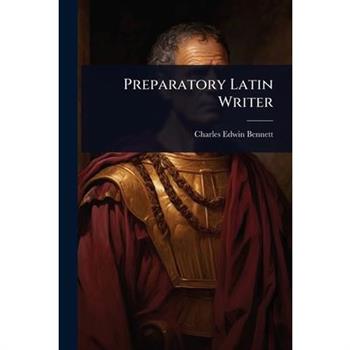
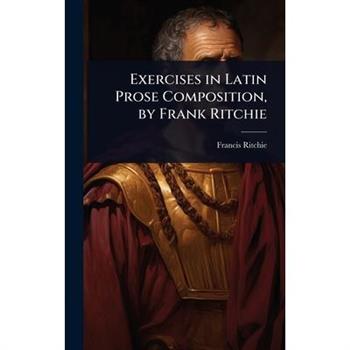
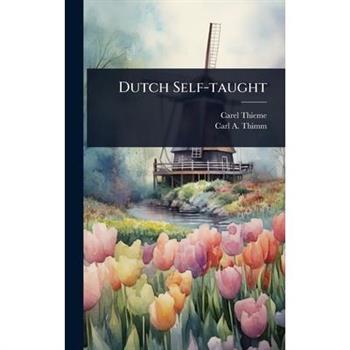
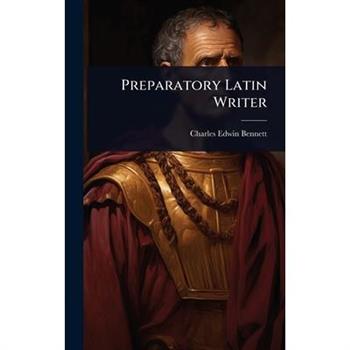
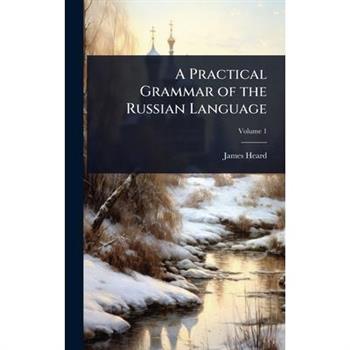
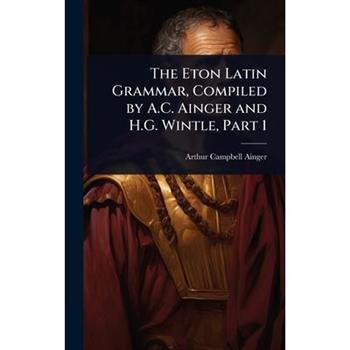
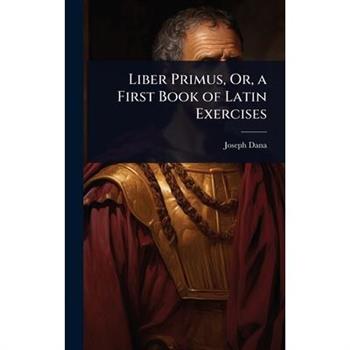
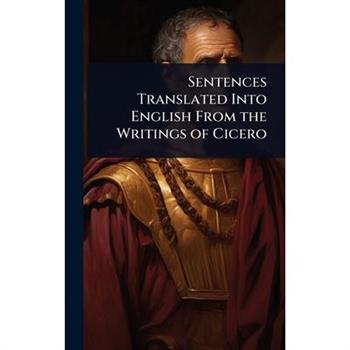
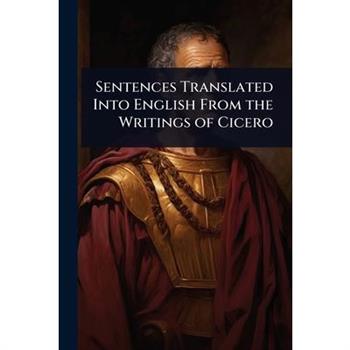
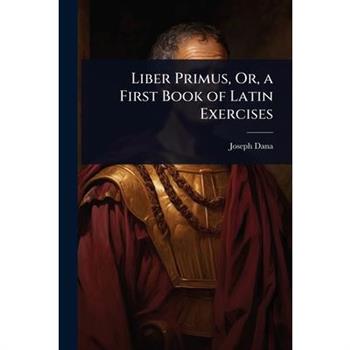
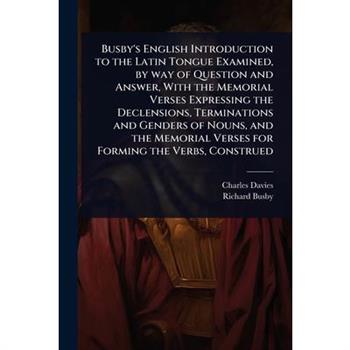
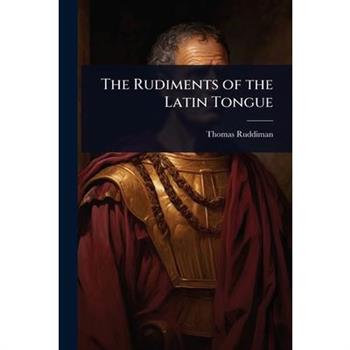
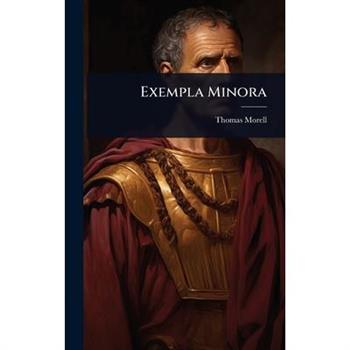
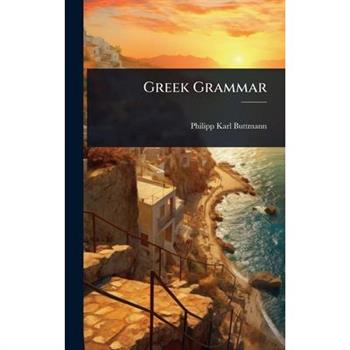
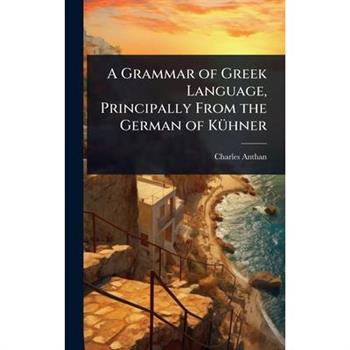
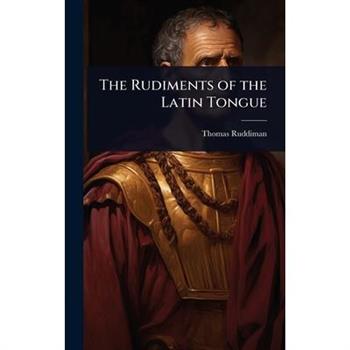
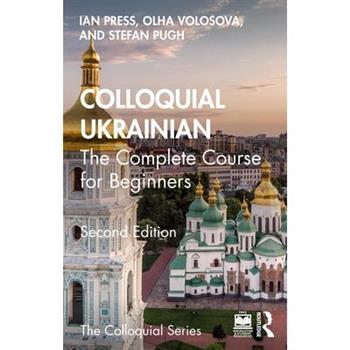

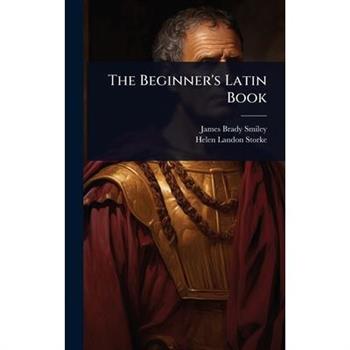
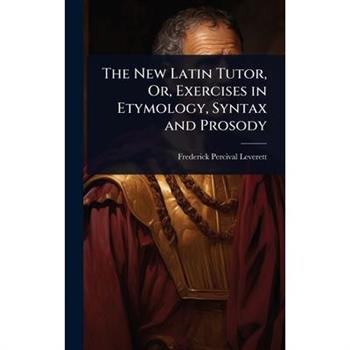
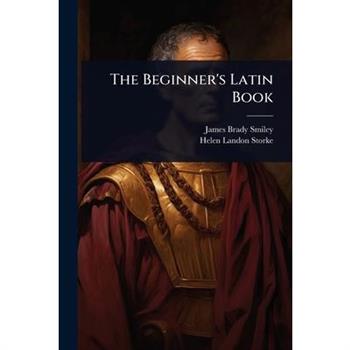
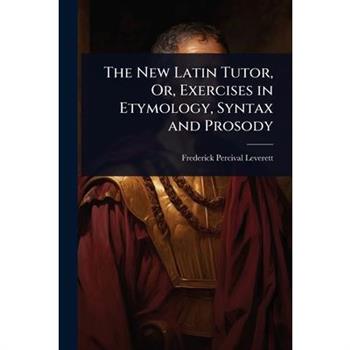
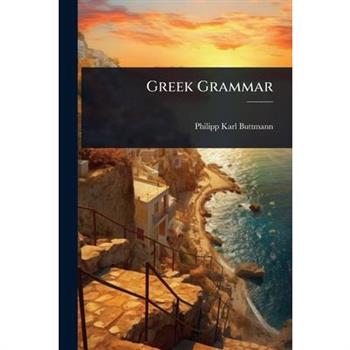
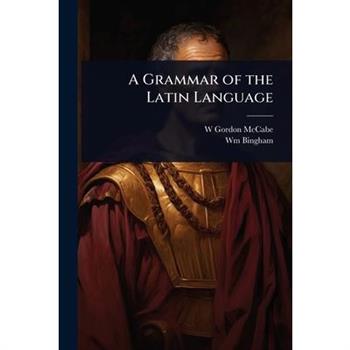
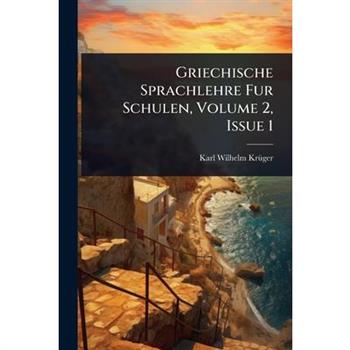
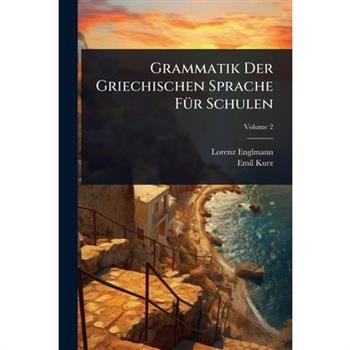
![Gr?]c?] Grammatic?] Compendium, In Usum Schol?] Regi?] Westmonasteriensis [by R. Busby] Gr?]c?] Grammatic?] Compendium, In Usum Schol?] Regi?] Westmonasteriensis [by R. Busby]](https://cdn.kingstone.com.tw/english/images/product/6617/9781024436617m.jpg?Q=92903)
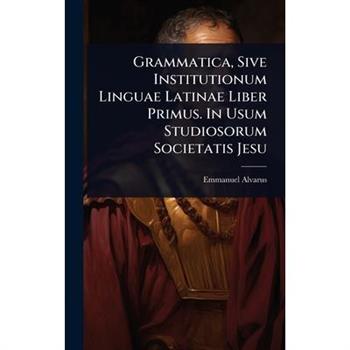
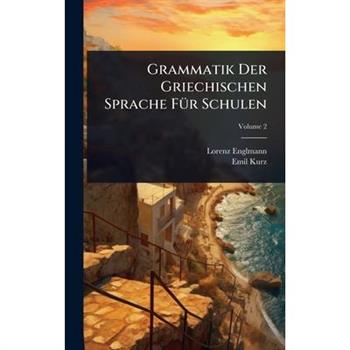
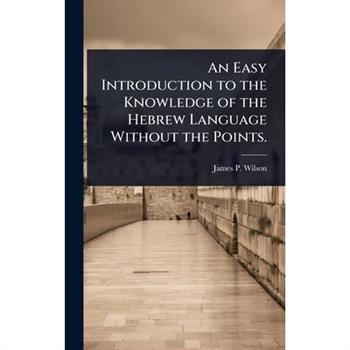

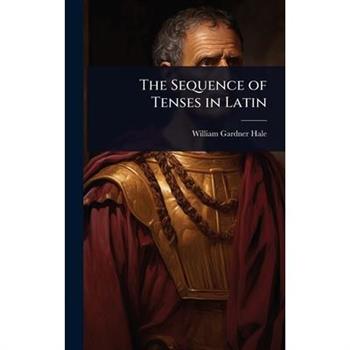
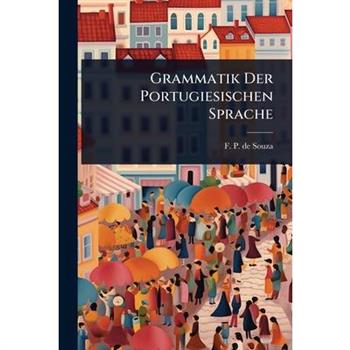
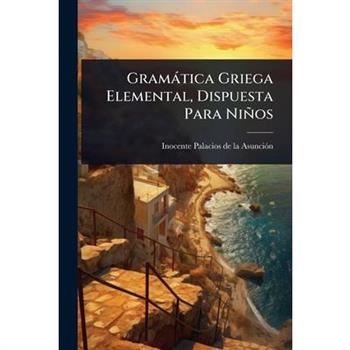
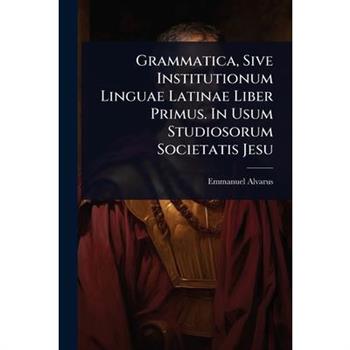
![Gr?]c?] Grammatic?] Compendium, In Usum Schol?] Regi?] Westmonasteriensis [by R. Busby] Gr?]c?] Grammatic?] Compendium, In Usum Schol?] Regi?] Westmonasteriensis [by R. Busby]](https://cdn.kingstone.com.tw/english/images/product/4835/9781024434835m.jpg?Q=1a074)
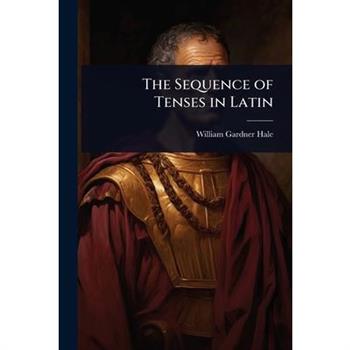
![Elementary Latin Grammar. [With] Latin Exercises Elementary Latin Grammar. [With] Latin Exercises](https://cdn.kingstone.com.tw/english/images/product/7524/9781023667524m.jpg?Q=156a6)
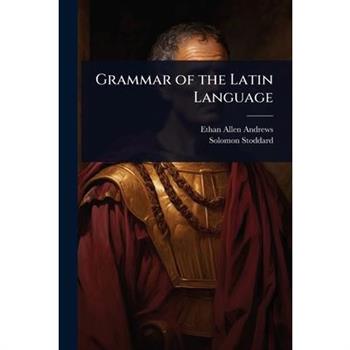
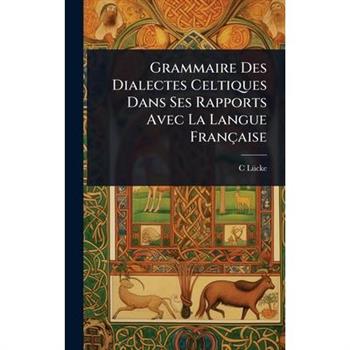
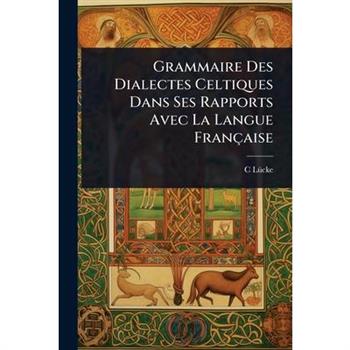
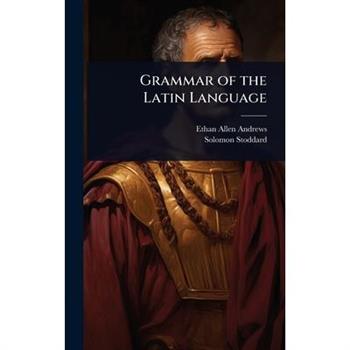
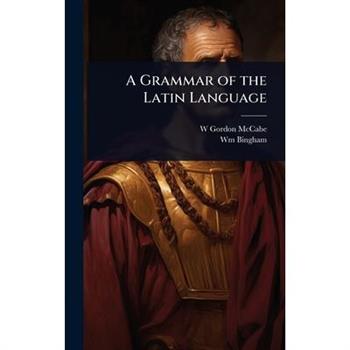
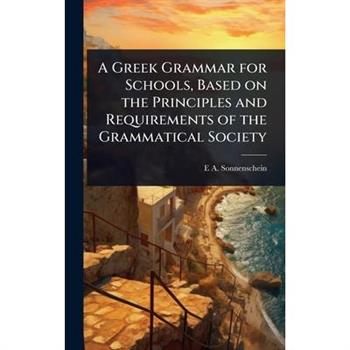
![Elementary Latin Grammar. [With] Latin Exercises Elementary Latin Grammar. [With] Latin Exercises](https://cdn.kingstone.com.tw/english/images/product/2024/9781023662024m.jpg?Q=f0e51)
